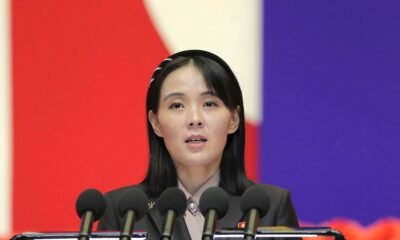INTERNACIONAL
EEUU corregirá los aranceles aplicados a Japón tras detectar un error respecto al acuerdo firmado en julio

Japón informó este viernes que Estados Unidos aplicó de forma incorrecta los nuevos aranceles a productos japoneses, violando los términos de un acuerdo bilateral alcanzado en julio. Washington admitió el error y se comprometió a corregir la orden ejecutiva correspondiente, además de reembolsar los pagos excedentes ya cobrados, según confirmó el negociador japonés en materia arancelaria, Ryosei Akazawa.
“El Gobierno de Estados Unidos ha reconocido que se cometió un error al establecer un arancel adicional del 15 % sobre gravámenes ya existentes, en lugar de aplicar un arancel fijo del 15 %, como estaba estipulado”, declaró Akazawa a la prensa japonesa en Washington. La información fue confirmada también por la cadena pública NHK, que cubre la visita de la delegación japonesa a EEUU.
El anuncio se produjo tras una reunión de más de tres horas entre Akazawa y los secretarios estadounidenses de Comercio, Howard Lutnick, y del Tesoro, Scott Bessent. Según un comunicado emitido por la Cancillería japonesa, el negociador “confirmó una vez más el contenido del acuerdo sobre aranceles recíprocos e instó a Estados Unidos a corregir la orden ejecutiva lo antes posible”.
La disputa surge luego de que Estados Unidos activara la nueva política arancelaria del presidente Donald Trump en la medianoche del jueves. La orden impuso un gravamen adicional del 15 % a productos importados desde Japón, lo que en algunos casos elevó los aranceles totales por encima de lo negociado. Tokio sostiene que esta aplicación no refleja el acuerdo alcanzado el pasado 22 de julio, cuando ambas partes pactaron un arancel fijo del 15 %, más bajo que el 25 % previamente amenazado y del 24 % anunciado en abril.
“Es sumamente lamentable que se haya emitido y puesto en vigor una orden presidencial que no cumple con el acuerdo entre Japón y EEUU”, expresó Akazawa. El funcionario también señaló que no se ha fijado una fecha concreta para la corrección, ya que se trata de un procedimiento administrativo interno de Estados Unidos. No obstante, indicó que la modificación “tendrá efecto retroactivo” y cubrirá las tasas cobradas hasta que se aplique la enmienda.
El acuerdo bilateral incluía, además del arancel del 15 % sobre importaciones generales desde Japón, una cláusula clave sobre la industria automotriz. La Administración Trump se comprometió a reducir los aranceles automotrices del 27,5 % al 15 % para vehículos y autopartes japonesas.

Esta rebaja fue negociada a cambio de una promesa de inversión por parte del gobierno japonés en territorio estadounidense. Sin embargo, Tokio aún espera claridad sobre cuándo se aplicará esta reducción.
El gobierno japonés ha mantenido que confía en que Washington cumplirá los términos acordados. En sus declaraciones, Akazawa reiteró que Japón actuará con base en el entendimiento alcanzado y continuará monitoreando los desarrollos administrativos en EEUU.
Este incidente ocurre en un contexto en el que Estados Unidos ha implementado aranceles diferenciados por país como parte de su política comercial bajo el lema “América primero”.
Japón, que buscaba un trato preferencial, consideró que había asegurado un alivio arancelario mediante negociaciones directas. La aplicación incorrecta del gravamen generó preocupación inmediata en Tokio sobre la solidez de los compromisos estadounidenses.
En tanto, Washington aún no ha emitido una orden formal de rectificación. Se espera que el Departamento de Comercio publique una revisión oficial de la orden ejecutiva en los próximos días. Hasta entonces, las empresas japonesas afectadas aguardan una resolución que garantice el reembolso y la estabilidad en las reglas de comercio bilateral.
(Con información de EFE)
Asia / Pacific,Corporate Events,Diplomacy / Foreign Policy,OSAKA
INTERNACIONAL
Dems tap ICE detainees, suspected illegal immigrants as guests for Trump’s speech: DHS
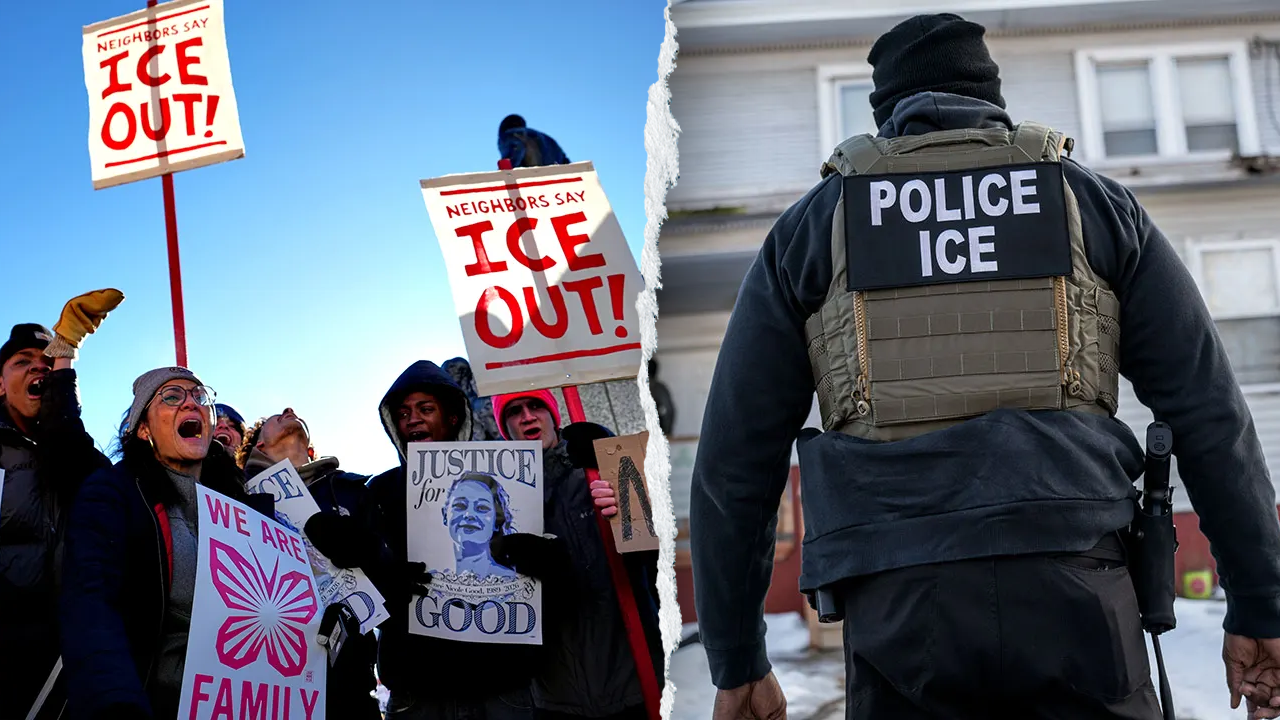
NEWYou can now listen to Fox News articles!
Several Democratic lawmakers are hosting State of the Union guests who have come under scrutiny from the Department of Homeland Security, including suspected illegal immigrants, Dreamers and citizens arrested for allegedly obstructing federal immigration enforcement.
A Fox News correspondent received the list when inquiring with the agency about a tweet released earlier Tuesday that said some Democrats are «planning to bring illegal aliens as guests to the State of the Union.»
«Once again, they are putting illegal aliens above the safety of American citizens. Yesterday alone our officers arrested pedophiles, rapists, and violent criminals from our communities.
«President Trump and Secretary Noem have made it abundantly clear: if you come to our country illegally and break our laws, we will find you, we will arrest you, and you will never return,» the agency said in its tweet.
A Fox News Digital review of the list found guests with varied backgrounds and circumstances.
Rep. Ilhan Omar, D-Minn., is reportedly hosting Aliya Rahman, who was detained during an operation targeting Ecuadorian national Jonathan Chachipanta-Pualacin Jan. 13.
Members of Congress begin to arrive in the House Chamber before President Donald Trump delivers the State of the Union address at the U.S. Capitol in Washington, D.C., 24, 2026. (Andrew Caballero-Reynolds/AFP via Getty Images)
«ICE executed an arrest warrant to arrest an illegal alien with a final order of removal in the Park Avenue area of Minneapolis. ICE officers apprehended four illegal aliens,» a DHS spokesperson said.
«As officers carried out their law enforcement duties, a significant crowd surrounded them and began impeding law enforcement operations — a federal crime. One agitator ignored multiple commands by an officer to move her vehicle away from the scene. She was arrested for obstruction,» the spokesperson added.
DHS further disputed claims from outlets such as the CBC that reported Rahman was denied medical care after being pulled from her vehicle and detained.
DHS SLAMS DEMS FOR COMPLAINING ABOUT IMMIGRATION LAW: ‘IT IS QUITE LITERALLY THEIR JOB TO CHANGE IT’

Rep. Ilhan Omar, D-Minn., arrives for a town hall event in Minneapolis Jan. 27, 2026. (Angelina Katsanis/Bloomberg via Getty Images)
Another Omar guest, Mary Granlund, is a local school board chairwoman who has taken action since the detention of a 5-year-old at Columbia Heights School, according to a statement from Omar’s office.
Granlund works with a group of faculty members who are «conducting daily patrols, working to connect detained children and families with legal assistance and coordinating food deliveries for families too scared to leave their homes,» Omar’s office said.
A DHS spokesperson said ICE does not go into schools and instead targets child predators to protect those same children.
Rep. Jesus Garcia’s guest is Marimar Martinez, who DHS alleged was part of an «ambush» of federal officers in October and whom the agency labeled a «domestic terrorist.»
Martinez, who was reportedly armed and «has a history of doxxing federal agents,» «took defensive fire» from CBP and was later taken into FBI custody after a hospital stay.
When asked about the criticism, Garcia told Fox News Digital, «I invited Marimar Martinez to be my guest to the State of the Union because her own government almost murdered her and is now covering it up by smearing her and failing to hold Charles Exum and other agents accountable.
DHS SAYS ANTI-ICE AGITATORS HELPED CHILD RAPISTS, GANG MEMBERS EVADE DEPORTATION
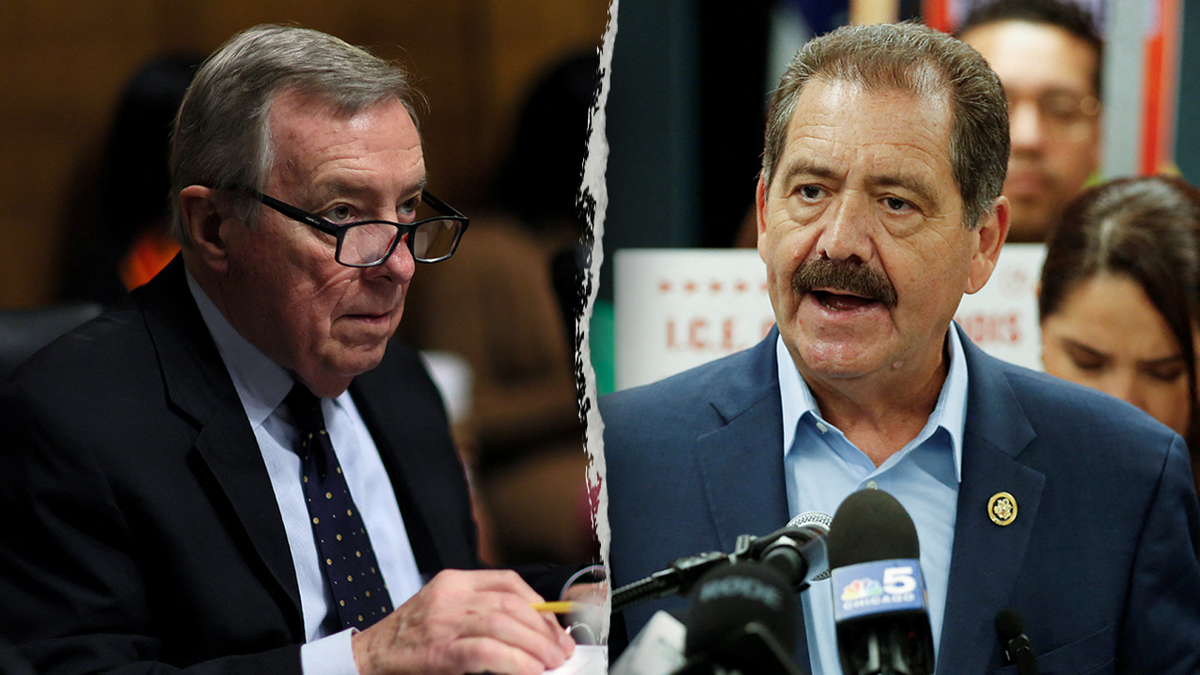
Sen. Richard Durbin, left, Rep. Jesus Garcia (Reuters)
«This is their playbook,» the Chicago lawmaker added. «I’m proud that Marimar is my guest. Her courage stands in stark contrast to the cowardice and brutality of DHS and the rest of this lawless Administration.»
In a prior statement, Garcia said that a Border Patrol agent «brutally shot Marimar and bragged about it, and the Trump administration wrongly called her a ‘domestic terrorist’.»
Sen. Richard Durbin, D-Ill., the forefather of the DREAM Act, invited Tereza Lee, a pianist and daughter of Korean immigrants whom Durbin said is the inspiration behind the legislation he has put forth in each Congress since 2001. The latest version was introduced in 2025 and co-sponsored by Sen. Lisa Murkowski, R-Alaska.
In a statement Monday, Durbin announced Lee’s invitation, crediting her «bravery for sharing her story» and adding that President Donald Trump’s «animus towards immigrants is on full display in his second term.»
DHS noted the DREAM Act would «allow noncitizens without legal status who were brought to the U.S. as children and meet certain education, military service or work requirements — to earn lawful permanent residence.»
Another Illinois lawmaker, Rep. Raja Krishnamoorthi, is inviting the daughter of a man detained by DHS during the height of Operation Midway Blitz.
DHS DEMANDS MN LEADERS HONOR ICE DETAINERS, ALLEGES HUNDREDS OF CRIMINAL ALIENS HAVE BEEN RELEASED UNDER WALZ
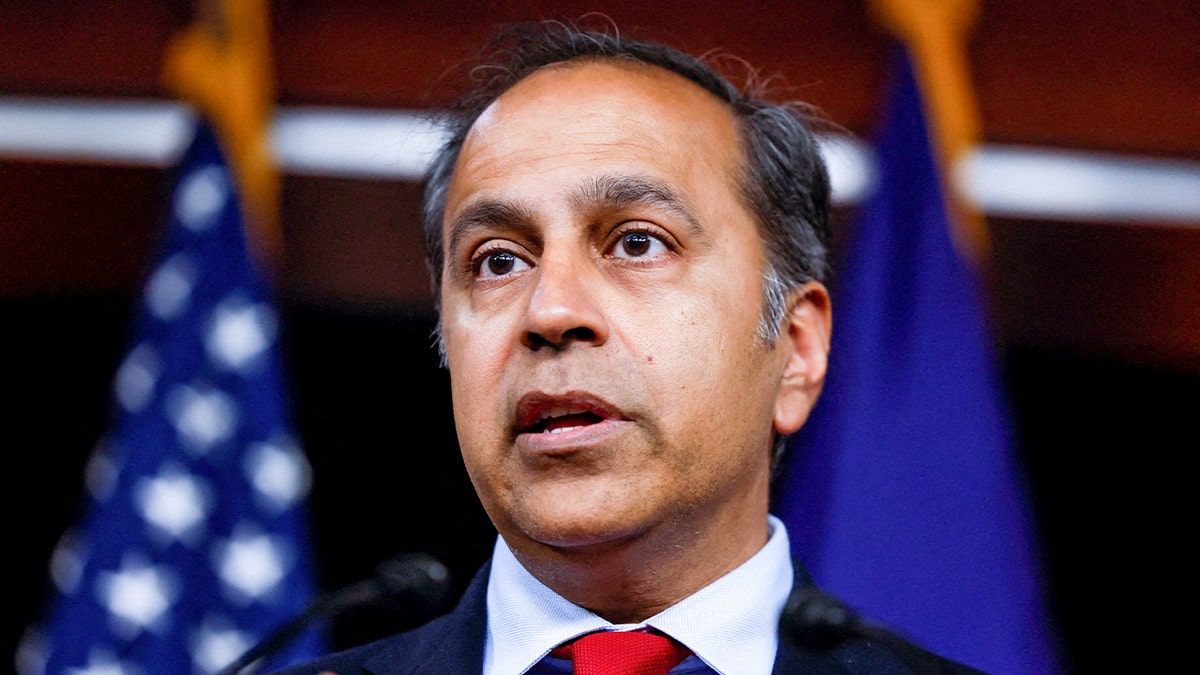
U.S. Rep. Raja Krishnamoorthi, D-Ill., answers questions during a news conference about the recent congressional delegation trip to the Indo-Pacific region on Capitol Hill in Washington, D.C., Aug. 10, 2022. (Reuters/Evelyn Hockstein/File Photo)
«Donald Trump can try to rewrite his record tonight, but communities across America are living with the consequences of militarized immigration operations that have terrorized families and left Americans dead,» Krishnamoorthi said in announcing that he invited University of Illinois Urbana-Champaign student Jamie to join him.
Rep. Seth Moulton, D-Mass., is inviting Marcelo Gomes da Silva, a man whom DHS said was detained in May 2024 while driving the car of his father, who was being sought by authorities.
Marcelo’s student visa had lapsed, and Assistant Secretary Tricia McLaughlin told Fox News that the «facts [of his case] haven’t changed.»
«[He] is still an illegal alien and subject to removal proceedings. The Trump administration is committed to restoring the rule of law and common sense to our immigration system and will continue to fight for the arrest, detention and removal of aliens who have no right to be in this country.»
Senate Minority Leader Charles Schumer, D-N.Y., is hosting a Venezuelan immigrant whose son was detained during a May 2025 immigration court hearing and is now being held in Pennsylvania.
«Dylan Josue Lopez Contreras is an illegal alien from Venezuela who illegally entered the U.S. more than one year ago. Under the Biden administration, he was encountered at the border and released into the country,» a DHS spokesperson countered.
NOEM SLAMS DEMS BLOCKING DHS FUNDING BILL CITING TSA, FEMA, COAST GUARD: ‘I HOPE THEY COME TO THEIR SENSES’
«On May 21, 2025, Contreras was arrested and placed in expedited removal proceedings. Most aliens who illegally entered the United States within the past two years are subject to expedited removals. [Joe] Biden ignored this legal fact and chose to release millions of illegal aliens, including violent criminals, into the country with a notice to appear before an immigration judge.
«ICE is now following the law and placing these illegal aliens in expedited removal, as they always should have been.»
Rep. Mike Levin, D-Calif., is hosting Stephanie Quintino, whose parents, Gladys and Nelson Gonzalez, have been deported to Colombia, according to the agency.
Sen. John Hickenlooper, D-Colo., is hosting Carolina Dias-Goncalves, a Dreamer at the University of Utah who was temporarily held at an ICE detention center after a Colorado traffic stop.
Rep. Robert Menendez Jr., D-N.J., is honoring Adriana Quiroz Zapata, an asylum seeker from Colombia who reports said fled a violent and «politically connected» former partner with his choice of guest.
Zapata’s niece, Monica Van Housen, who has been working to prevent Zapata from being deported, will be joining Menendez in the chamber.
CLICK HERE TO DOWNLOAD THE FOX NEWS APP
«Adriana, Monica and their family deserve so much better from America than what Donald Trump, Kristi Noem, and ICE have subjected them to,» Menendez told the New Jersey Globe.
Fox News Digital reached out to each member mentioned by DHS for comment.
homeland security,state of the union,ilhan omar,democrats,illegal immigrants
INTERNACIONAL
Russian ‘dark fleet’ tanker believed to be delivering oil to Cuba, detected off US coast amid Trump ban

NEWYou can now listen to Fox News articles!
A tanker allegedly carrying Russian fuel en route to Cuba is using deceptive «dark fleet» tactics, including signal manipulation and offshore ship-to-ship transfers, according to maritime intelligence firm Windward.
According to MarineTraffic, the vessel, called Sea Horse, was located Tuesday on the U.S. East Coast with its signal, noted as «roaming.»
The move comes as the U.S. pressured Cuba’s fuel supplies, disrupting deliveries and targeting third-party countries that provide oil, following new sanctions and the detention of Venezuelan leader Nicolás Maduro.
On Jan. 29, President Donald Trump also signed an executive order declaring a national emergency with respect to Cuba and authorizing tariffs on imports from countries that sell or supply oil there.
Windward reported that the Russian oil tanker initially broadcast Havana as its destination on Feb. 7, and was «Hong Kong-flagged» before quietly changing tack. Windward said the tanker had an expected arrival in Cuba in early March.
The Gabon-flagged crude oil tanker NS Concord at the Port of Matanzas in Matanzas, Cuba, on Saturday, March 30, 2024. (Yander Zamora/Bloomberg via Getty Images)
The vessel altered its Automatic Identification System (AIS) signal to show it would arrive in the «Caribbean Sea» within two weeks — a vague designation the firm said is often used to hide a ship’s final port of call.
The destination was later switched again to Gibraltar for orders, even after the tanker had already transited the strait, a move Windward described as inconsistent with standard commercial routing.
Windward’s analysis also suggests the vessel loaded its cargo through a ship-to-ship (STS) transfer conducted offshore near Cyprus.
RUSSIAN OIL TANKER ‘THE GRINCH’ INTERCEPTED AS US, ALLIES ESCALATE SANCTIONS CRACKDOWN

A tanker sailing under the flag of Cuba, arrives at the port of Havana on Feb. 9. (Yamil Lage / AFP via Getty Images)
During the loading process, the tanker’s AIS signal was temporarily switched off — «a tactic of deceptive maritime operations designed to avoid regulatory scrutiny,» Windward said.
Windward data also shows the vessel’s draft increased on Feb. 8, several days after leaving an area used for floating storage and transshipment of Russian middle distillate cargoes originating from Black Sea ports.
The tanker had loitered in that zone for roughly two weeks before departing, Windward said.
«Ship-to-ship transfers outside territorial waters, where port-state oversight is limited, have become a common practice in oil trade to circumvent sanctions and regulatory scrutiny,» Windward noted.
‘IRREGULAR’ ARMED GUARDS ABOARD RUSSIAN SHADOW TANKERS ALARM NORDIC-BALTIC GOVERNMENTS
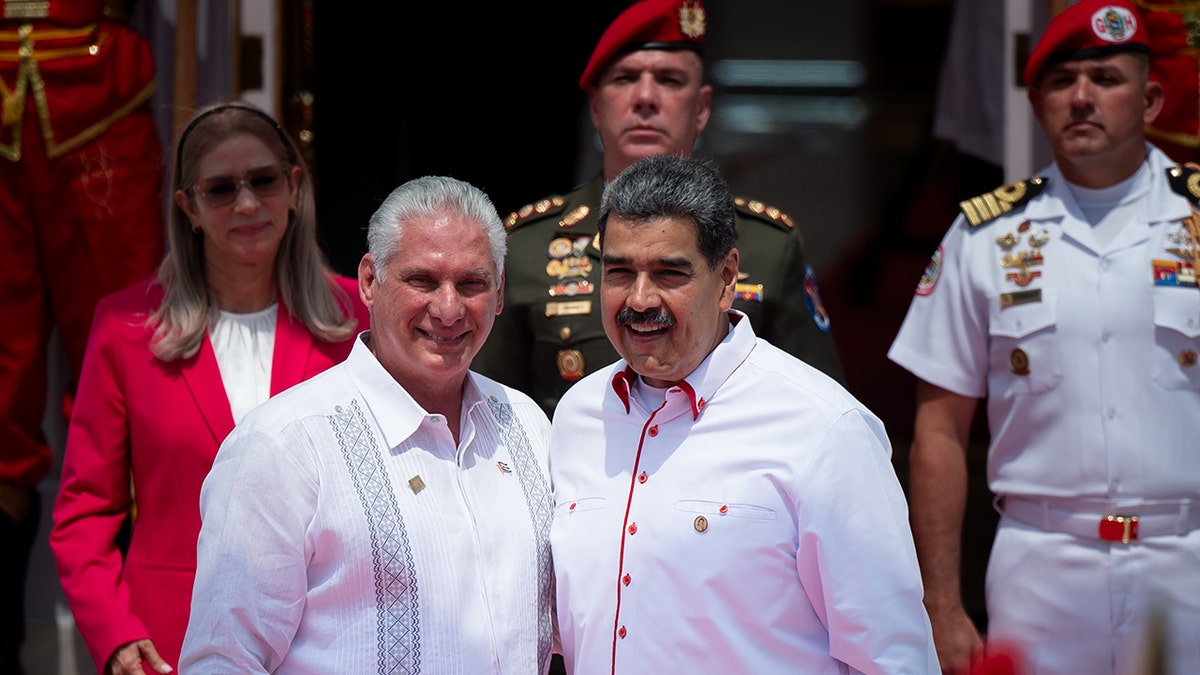
Venezuelan President Nicolás Maduro, right, with Cuban President Miguel Diaz-Canel in 2024. (Gaby Oraa/Bloomberg via Getty Images)
The company added that AIS manipulation, offshore transfers and ambiguous destination reporting are now standard features of shadow-fleet activity sustaining Russian oil exports despite any U.S. sanctions.
CLICK HERE TO DOWNLOAD THE FOX NEWS APP
Cuba is also facing an energy crisis that has worsened in recent weeks after oil shipments from Venezuela, its primary supplier, were halted following U.S. action in early January.
Mexico, another major supplier, also suspended oil shipments, according to The Associated Press.
cuba,world,russia,sanctions,donald trump,world politics,venezuelan political crisis
INTERNACIONAL
A cuatro años de la invasión, Zelenski mostró por dentro el búnker en el que se refugió ante el avance de Rusia sobre Ucrania


 POLITICA1 día ago
POLITICA1 día ago“Nos hacemos cargo”: Patricia Bullrich admitió un error del Gobierno en la inclusión del artículo de las licencias médicas

 POLITICA1 día ago
POLITICA1 día agoDaiana Fernández Molero defendió la reforma laboral: “Va a haber mayor creación de empleo porque va a ser más fácil contratar en blanco”

 CHIMENTOS2 días ago
CHIMENTOS2 días ago¡Llora Wanda Nara! Anunciaron el casamiento de Mauro Icardi y la China Suárez: “Un súper anillo”, anticipó la tarotista Jimena La Torre sobre el futuro de la pareja





